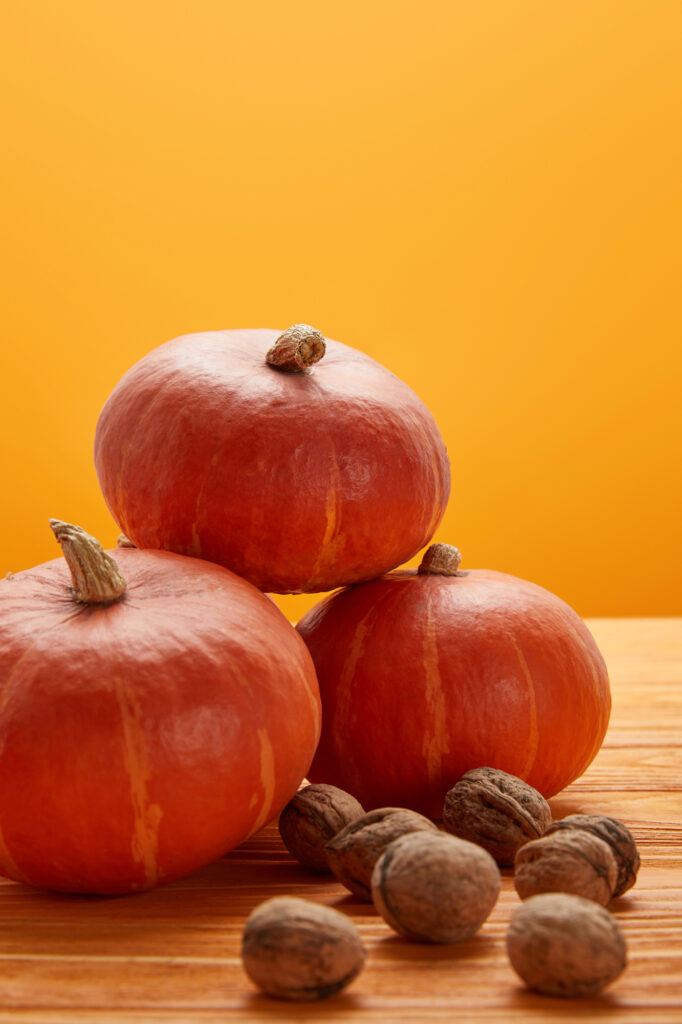As autumn rolls in with its cooler breezes and shorter days, it’s the perfect time to adjust our sleep routines for the new season. If you’re anything like me, you probably feel these seasonal shifts more intensely. That’s where Ayurveda, an ancient holistic health system from India and a sister science to yoga, comes in. This time-tested wisdom offers valuable insights to help us as Highly Sensitive People navigate autumn sleep changes more smoothly. By aligning our habits with nature’s rhythms, we can better manage the shifts and find balance as the season changes.
Ayurveda teaches us to align our body, mind, and spirit by syncing our habits and diet with the natural rhythms of each season. Autumn, in particular, often brings the biggest shift for our sensitive nervous systems. The transition from summer’s warmth and long days to autumn’s cooler air and shorter daylight can really affect our energy and mood. Cooler temperatures, dry winds, and reduced sunlight can leave us feeling more off-kilter than usual, making it even more important to adapt our routines to stay balanced and mindful as the season changes.

Table of Contents
What is Ayurveda and Why Does it Matter?
Ayurveda is an ancient system of natural healing that originated in India over 5,000 years ago. Rooted in the Sanskrit words “Ayur” (life) and “Veda” (knowledge), Ayurveda translates to the “science of life.” It emphasizes a holistic approach to health by balancing the mind, body, and spirit through diet, herbal remedies, meditation, and lifestyle practices. Ayurveda is deeply connected to spiritual practices, as it teaches that health is achieved when an individual’s physical body is aligned with their spiritual self. The system also incorporates concepts from Vedic philosophy, promoting harmony with the universe and nature.
Ayurveda is emphasizes how the seasons affects our well-being. It teaches us to live in harmony with nature by making small shifts in our lifestyle, diet, and routines to match the season we’re in. Now, when autumn comes around, Vata dosha takes the lead. Vata is all about coolness, dryness, and irregularity—qualities that can quickly throw off our sleep and overall balance if we’re not careful.
For HSPs like us, who are particularly sensitive to changes in our environment, balancing Vata is key to getting good, restful sleep.
What Ayurveda Says About the Seasons and Doshas
According to Ayurveda, the year is divided into three doshas (or energies) that influence how we feel physically and mentally:
Understanding the Doshas and the Seasons
In Ayurveda, the year is divided into three main doshas, or energies, each associated with different seasons:
- Vata (Autumn: Late September through early December): Characterized by coolness, dryness, and a bit of unpredictability. Vata governs movement and creativity, but when out of balance, it can leave us feeling scattered, restless, or frazzled.
- Pitta (Summer: Late June through early September): Known for its heat and intensity. Pitta controls digestion and metabolism, and an excess of Pitta can make us feel overheated, impatient, or irritable.
- Kapha (Spring: Early March through late May): Heavy, stable, and moist. Kapha provides structure and keeps everything flowing smoothly, but too much Kapha can lead to sluggishness, heaviness, or feeling stuck.
Winter (Late December through early March) is also an important season in Ayurveda, typically associated with a predominance of Kapha dosha, which can bring its own set of challenges and adjustments.
Understanding Vata Energy in Autumn
Each season has a dosha that dominates, and in autumn, it’s Vata’s turn. Autumn’s cool, dry, and unpredictable nature means Vata energy is everywhere. And since many of us HSPs already feel environmental shifts more intensely, this can make autumn feel like a bigger challenge.
For us, this can mean feeling off balance, and it can especially affect our sleep. Vata’s coolness can cause our body temperature to drop, its dryness can make us feel uncomfortable, and the irregularity? This is why we sometimes feel like our sleep patterns are all over the place.
When Vata is out of balance, you might experience insomnia, restlessness, or just overall discomfort. Here are some signs that Vata may be out of balance for you:
- Trouble Falling or Staying Asleep: Insomnia or waking up frequently throughout the night is a classic sign of excess Vata. Your mind might feel restless, making it tough to settle down and drift off into restful sleep.
- Feeling Restless or Anxious: If you’re noticing that you’re more fidgety, anxious, or unable to focus, that’s Vata’s irregular energy at work. You may feel like your thoughts are scattered or that you’re constantly on edge.
- Dry Skin, Lips, or Eyes: Autumn’s dryness can exacerbate Vata’s natural tendency toward dryness. If your skin is flaky, your lips are chapped, or your eyes feel irritated, it could be a sign that Vata is out of balance.
- Cold Hands and Feet: Vata is cool by nature, so if you’re noticing that your hands and feet are always cold, even when the temperature doesn’t feel that chilly, it’s likely a result of too much Vata energy.
- Digestive Issues: Gas, bloating, or irregular bowel movements are all signs of excess Vata. Since Vata governs movement in the body, when it’s out of balance, your digestive system can feel a little erratic.
- Feeling Overwhelmed or Frazzled: Vata’s energy is light and airy, and when it’s off balance, you might feel mentally scattered or overwhelmed by even small tasks. It’s that “too much going on” feeling where your brain can’t seem to settle.
- Unusual Fatigue: If you’re feeling more tired than usual, but unable to rest properly, this could also be a sign of Vata imbalance. The tired-but-wired feeling can make it harder to unwind and get restorative rest.
When you start noticing any of these signs, it’s your body’s way of letting you know that Vata energy might be getting a little too high. The good news is that you can take steps to bring it back into balance with some simple lifestyle tweaks—there are plenty of simple ways to bring yourself back into balance.

Looking for HSP Tools to Thrive in a Chaotic World?
The modern world is often overwhelming and stressful for those of us with sensitive nervous systems. Many of us have suffered from the challenges of high stress, anxiety, sensory overload, and mental health and physical health issues. Fortunately, after years of working with and researching Highly Sensitive People (HSPs), Julie Bjelland has developed many tools that have not only helped her but thousands of HSPs all over the world move out of survival mode living and into thriving. In this free webinar, she’ll share the tools that HSPs have found the most life-changing. Her goal is to help you live to your fullest potential because the world needs you.
Join this free webinar and get tools to help you thrive as an HSP!
Practical Tips for Balancing Vata and Enhancing Sleep
Let’s talk about solutions! Here are some tried-and-true ways to keep Vata in check and get your sleep back on track.
Transform Your Bedroom into a Vata-Soothing Sanctuary
What to Do: Create a warm, cozy space that feels inviting. Use flannel sheets or high-thread-count cotton, and make sure you have a nice, comfy comforter. If you’re in a cooler climate, maybe add a heated blanket or throw an extra layer on your bed. And if it’s still warm where you are, go for breathable fabrics and keep your room cool, but watch out for cold drafts.
Why It Helps: A warm, comfortable sleep environment counters Vata’s cool and dry qualities, making it easier to drift off.
Establish a Grounding Evening Routine
What to Do: Spend about 30 to 60 minutes before bed unwinding with grounding activities. This could be gentle stretching, a warm bath, reading a book, some simple focused breathing, meditation, or any quiet activity that brings a little calm into your life. And, if you can, avoid screens and other stimulating activities that can rile up Vata’s irregular energy.
Why It Helps: Grounding activities and a consistent bedtime routine help calm Vata down, making it easier for you to relax and fall asleep.
Incorporate Warm, Nourishing Foods and Beverages
What to Do: Your diet plays a huge role in balancing Vata. Do your best to choose warm, hydrating meals, like soups, stews, or roasted veggies. About an hour before bed, sip on a cup of herbal tea (chamomile or ginger are great choices!). If you’re in a colder climate, warming spices like cinnamon and cardamom are awesome to include in your meals.
Why It Helps: Warm, moist foods help counteract Vata’s dryness and coolness, promoting comfort and balance as you get ready for sleep.
Tips for Different Climates
Autumn doesn’t look the same everywhere, so how you tweak your sleep routine might depend on where you live. Here’s a quick breakdown for warm vs. cold climates:
For Warm Climates
If you’re somewhere where autumn doesn’t bring much of a cool-down:
- Bedding: Stick to lightweight, breathable fabrics like cotton or linen to stay cool and comfortable.
- Bedroom: Use fans or keep windows open to maintain good air circulation. Just watch out for chilly breezes as the nights start cooling down.
- Diet: Focus on hydrating foods, and stick to room-temperature or slightly warm drinks. Foods like cucumbers, leafy greens, and melons can help keep your body regulated.
For Cold Climates
If you’re somewhere where autumn gets chilly fast:
- Bedding: Add extra layers to your bed—think flannel sheets, blankets, or even a heated blanket if it gets really cold.
- Air: Since colder air tends to be dry, running a humidifier can help add some moisture back into the room and keep your airways comfortable.
- Diet: Go heavy on warm, nourishing meals and drinks. Think hearty soups, stews, and herbal teas. Not only are they comforting, but they’ll also help keep your internal warmth steady.
Bringing it All Together
As we settle into autumn, it’s all about embracing the seasonal shifts and adjusting our routines in the best way we can according to our environment. As HSPs, when we align our sleep routine with the changing season, and tap into Ayurvedic wisdom, it can make a world of difference for our much-needed sleep. By creating a warm and grounding environment, establishing calming rituals, and choosing seasonal foods, you’ll be well on your way to consistent, restorative sleep.
Remember, these changes don’t have to be big or all at once. Small steps are always best, be patient and take your time. Listen to your body, make adjustments as the season progresses, and enjoy the process of tuning into these natural rhythms. Sleep well and take care of yourself.
Be sensitive, be free
*This post contains affiliate links and I will be compensated if you make a purchase after clicking on my links*





[…] author has learned through his adventures, challenges, and experiences that highly sensitive people are not weak or […]